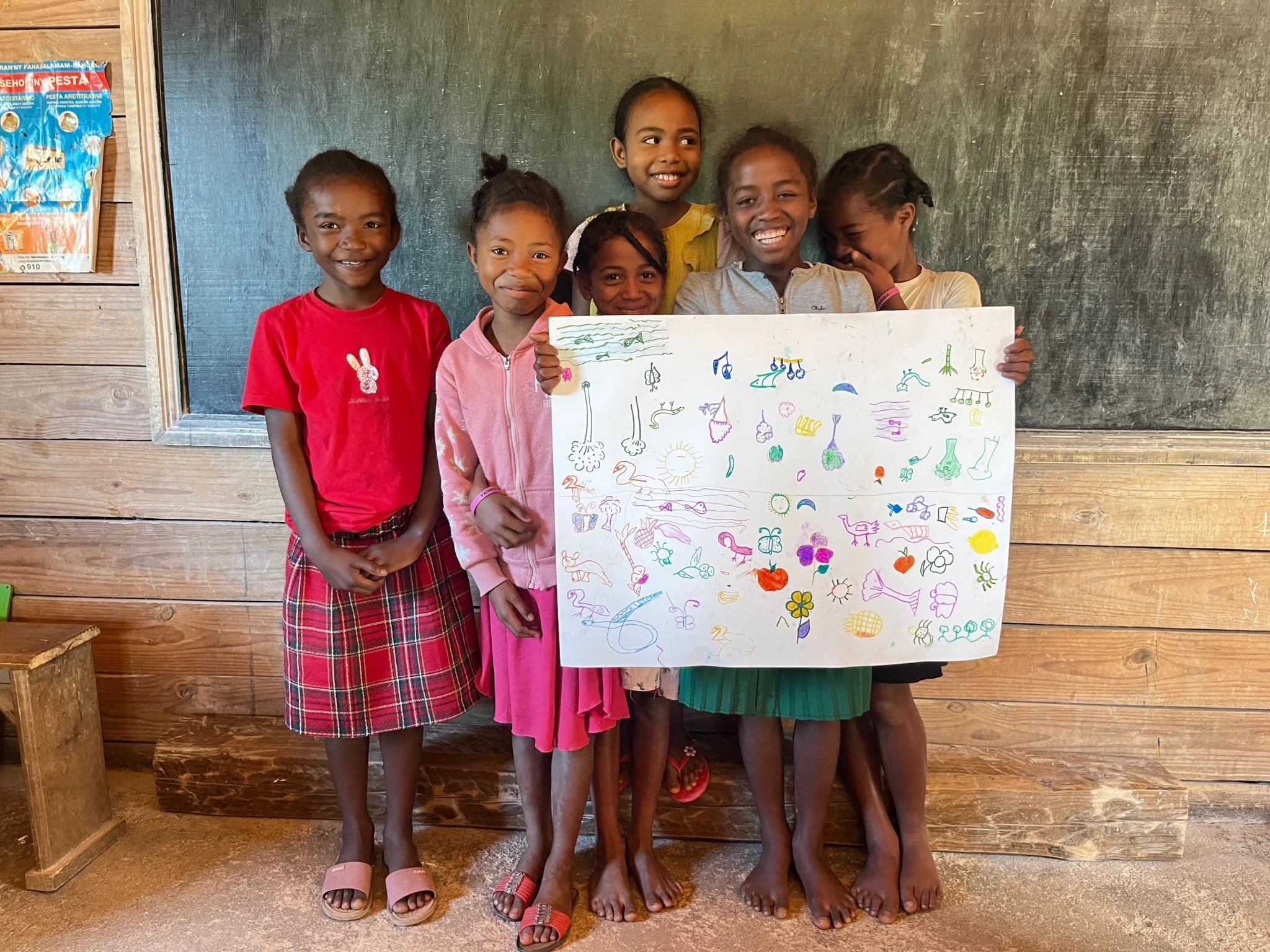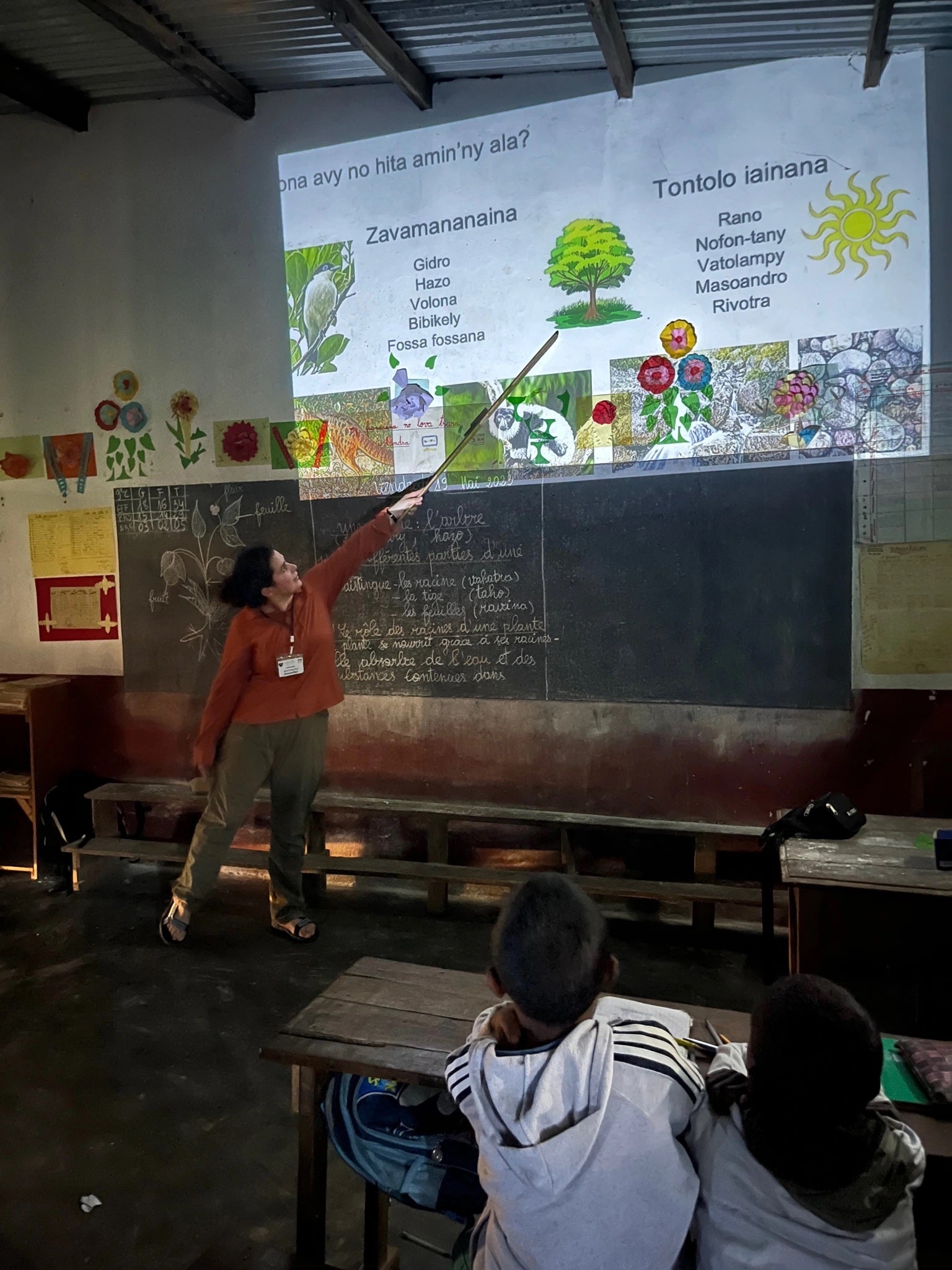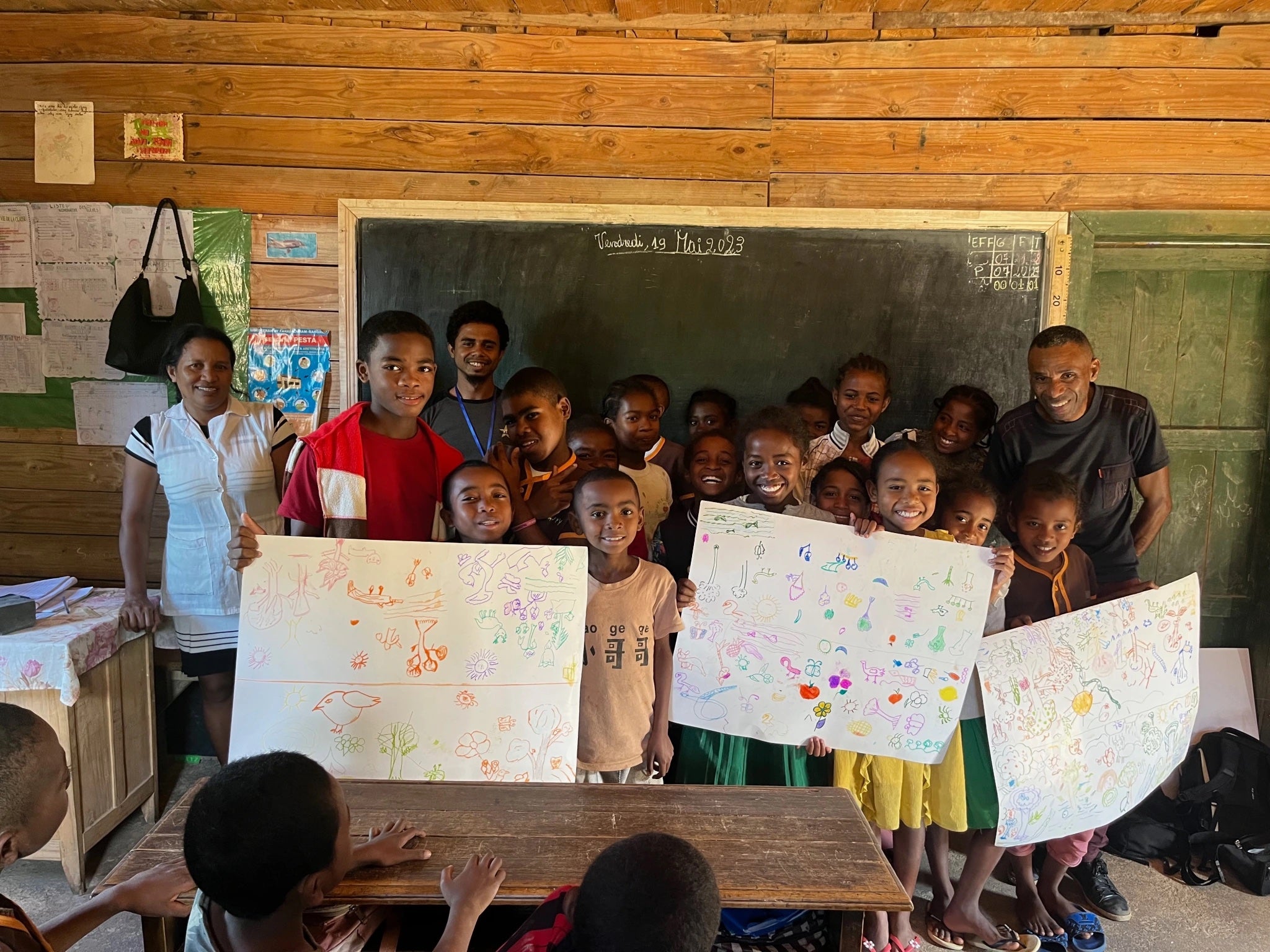Julieanne Montaquila conducted extensive research in Madagascar, focusing on understanding the vulnerability of its ecosystems. Additionally, she actively engaged with students, sharing her expertise as a Ph.D. student and educating them about her research endeavors. Her trip was funded by the Expanding Horizons Scholarship, generously provided by alumnus Walter Loewenstern.
In May 2023, I visited 4th year students at two primary schools in Ambatolahy and Ranomafana, Madagascar. We learned about how different elements, both living and non-living, come together to create an ecosystem. We also learned about how ecosystems are vulnerable due to over-exploitation by humans. We discussed the important science, conservation, and education that Malagasy people do in Madagascar to benefit people and the environment. I also spoke about my journey as a Ph.D. student. Afterward, the students were divided into groups to draw the forest ecosystem. Students were encouraged to be creative, and they had many different ideas that reflected their own experiences with the forest.
The children drew butterflies, trees, birds, and lemurs. They also drew the non-living elements of an ecosystem, including rivers, rocks, and the sun. Each classroom was given markers and crayons to keep, as art supplies found in the average U.S. classroom are rarely available to students in rural Madagascar. They kept their posters with drawings of the forest ecosystem to hang up in the classroom.

There are many ways of learning. In my experience, the opportunity to be creative and make collaborative artwork can help solidify new concepts and inspire students to be more curious about the world around them. These school visits to the local community were facilitated by the education team at Centre ValBio and MadaWorks. Special thanks to Nemese, who helped translate my presentation, and Lovasoa, who helped organize my school visits. Thank you also to Rice University’s Expanding Horizons grant and the IDEA grant, which helped fund this project.

About the author:
Julieanne is a current Ph.D. student in the Ecology and Evolutionary Biology program.
Further Reading:
Exploring Paradise: A Summer of Research in Moorea
Understanding Cervical Cancer in Mozambique: A Research Expedition
Chocolate Nápoles: Another Story to Tell about Hippos, Drug Trafficking and Violence in Colombia

